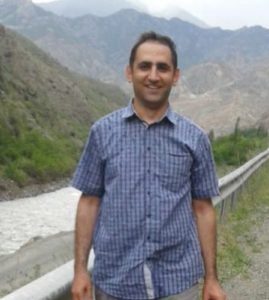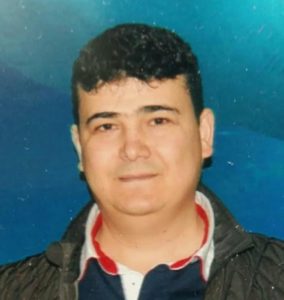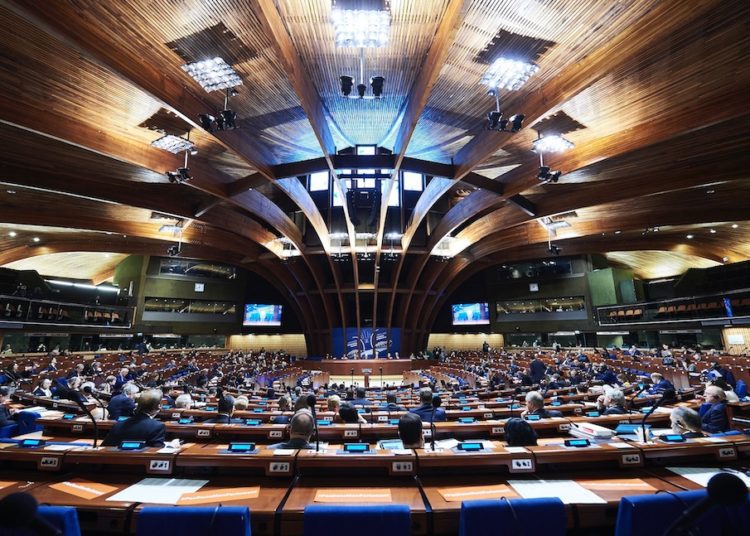Abdullah Bozkurt/Stockholm
The Parliamentary Assembly of the Council of Europe (PACE), Europe’s largest intergovernmental body that promotes the rule of law, has criticized Turkey over the impunity it has afforded the perpetrators of enforced disappearances in a large number of cases.
In a draft report that will be debated by PACE on Thursday, Rapporteur André Gattolin of France took aim at Turkey on a number of enforced disappearances, saying he was shocked that Turkey has for years failed to implement the judgments of the European Court of Human Rights (ECtHR) on such cases.
The report, titled “Ending enforced disappearances on the territory of the Council of Europe,” was drafted by PACE’s Committee on Legal Affairs and Human Rights and will most likely be approved in a vote on Thursday.
Referring to the UN’s Working Group on Enforced or Involuntary Disappearances (WGEID), which has also been critical of Turkey on such cases, Gattolin said Turkey has no autonomous criminal offense of enforced disappearance, which is treated as a mere element of other criminal offenses.
Enforced disappearances in which elements of the military, police or intelligence branches were involved have been on the rise in Turkey since 2016, although a large number of cases from the 1970s and the 1990s still linger with no resolution.
The recent wave of abductions and kidnappings carried out by Turkish intelligence agency MIT has targeted members of the Gülen movement, a group that is critical of the government of President Recep Tayyip Erdoğan. Many cases were documented when victims testified during court hearings, but the government did not bother investigating such cases at all, suggesting that enforced disappearances were in fact approved by the higher echelons of the Erdoğan government.
PACE report on enforced disappearances in Europe:
Gökhan Türkmen, a victim of enforced disappearance, revealed in a court hearing on February 10, 2020 that he had been held incommunicado at a black site in Ankara run by Turkey’s intelligence agency and subjected to severe torture during his 271-day stay. Türkmen was the object of threats and was sexually harassed and abused during his enforced disappearance.
Another man, Yasin Ugan, also testified in court on June 23, 2020 that he had been tortured for six months after being kidnapped on February 13, 2019 by security officers, with his head covered with a black plastic bag most of the time.
Turkey also faces a number of cases of enforced disappearance from its military intervention in Cyprus in 1974. A total of 1,510 Greek Cypriots and 492 Turkish Cypriots have been reported missing since then. The Committee on Missing Persons (CMP), established in 1981 under the auspices of the United Nations, has been working to identify missing persons and burial sites but has been prevented from carrying out its mandate by Turkey.
The Council of Europe’s executive body, the Committee of Ministers, has repeatedly called on Turkish authorities to provide the CMP with all necessary assistance for it to continue to achieve tangible results as quickly as possible. The ECtHR also rendered a judgment against Turkey in 2001 with respect to human rights violations in the military intervention.
“Notwithstanding some recent progress, I am shocked that the Court’s judgment, which dates from 2001 and relates to events of 1974 which constitute extremely serious human rights violations such as mass enforced disappearances has still not been fully implemented in 2021,” said Gattolin in his report.

Some of the cases stem from Turkish military operations in the predominantly Kurdish southeastern part of Turkey, where many Kurds went missing during clashes in the 1980s and 1990s between the Turkish military and the outlawed Kurdistan Workers’ Party (PKK).
“Turkey had not taken the measures required to deal with the disappearances and that many families still did not know the truth about the fate of their loved ones,” the report quoted WGEID as saying, adding that the number of missing persons in Turkey had further increased as a result of a migration crisis, especially since 2015.
Dozens of enforced disappearances have been reported in Turkey since the abortive putsch of July 2016, with more than 20 of the victims reporting, after they were found, that they were subjected to torture during the time they were “missing.”
The victims of those enforced disappearance cases were mostly alleged followers of the Gülen movement, which is inspired by the US-based Muslim cleric Fethullah Gülen and has been targeted by the president since the corruption investigations of December 17-25, 2013, which implicated then-prime minister Erdoğan, his family members and his inner circle.

Enforced disappearances must be investigated by an independent committee, said Sezgin Tanrıkulu, a human rights defender and deputy from the main opposition Republican People’s Party (CHP) in August 2021.
Tanrıkulu said enforced disappearances, which were common in Turkey during the 1990s, began to resurface after a coup attempt on July 15, 2016. “Many people disappeared without a trace or were kidnapped and later dropped off somewhere during the ’90s. We are currently witnessing similar incidents, in particular targeting members of the Gülen movement,” he said.
According to Tanrıkulu, there have been 1,352 known enforced disappearances since 1980. He said authorities needed to take immediate steps to counter such incidents and to stop them once and for all.
“Authorities must investigate the fate of those people who have disappeared and find them,” he said. “They must also look into the unsolved murders of dissidents and find the perpetrators.”

Special units organized within the state apparatus are responsible for enforced disappearances in Turkey, and they should be thoroughly investigated by parliament, said the Human Rights Association (İHD) at a press conference they held in January 2021 together with the daughter of Hüseyin Galip Küçüközyiğit, a former bureaucrat who had been missing since December 29, 2020. Küçüközyiğit disappeared after leaving his office in Ankara. His family started a campaign on social media expressing their fear that he might have been abducted by Turkish intelligence. Nine months later, Küçüközyiğit was found in Ankara’s Sincan Prison and had lost a significant amount of weight, according to his daughter Nursena.
İHD officials said enforced disappearances violate the right to liberty and security and contravene the prohibition of torture and inhuman treatment, basic rights and principles upheld by international conventions. The Turkish government needs to remain within the boundaries of the law and avoid intimidating its citizens, the officials said.
The İHD called on the authorities to find Yusuf Bilge Tunç, another former bureaucrat who has been missing since August 6, 2019.












